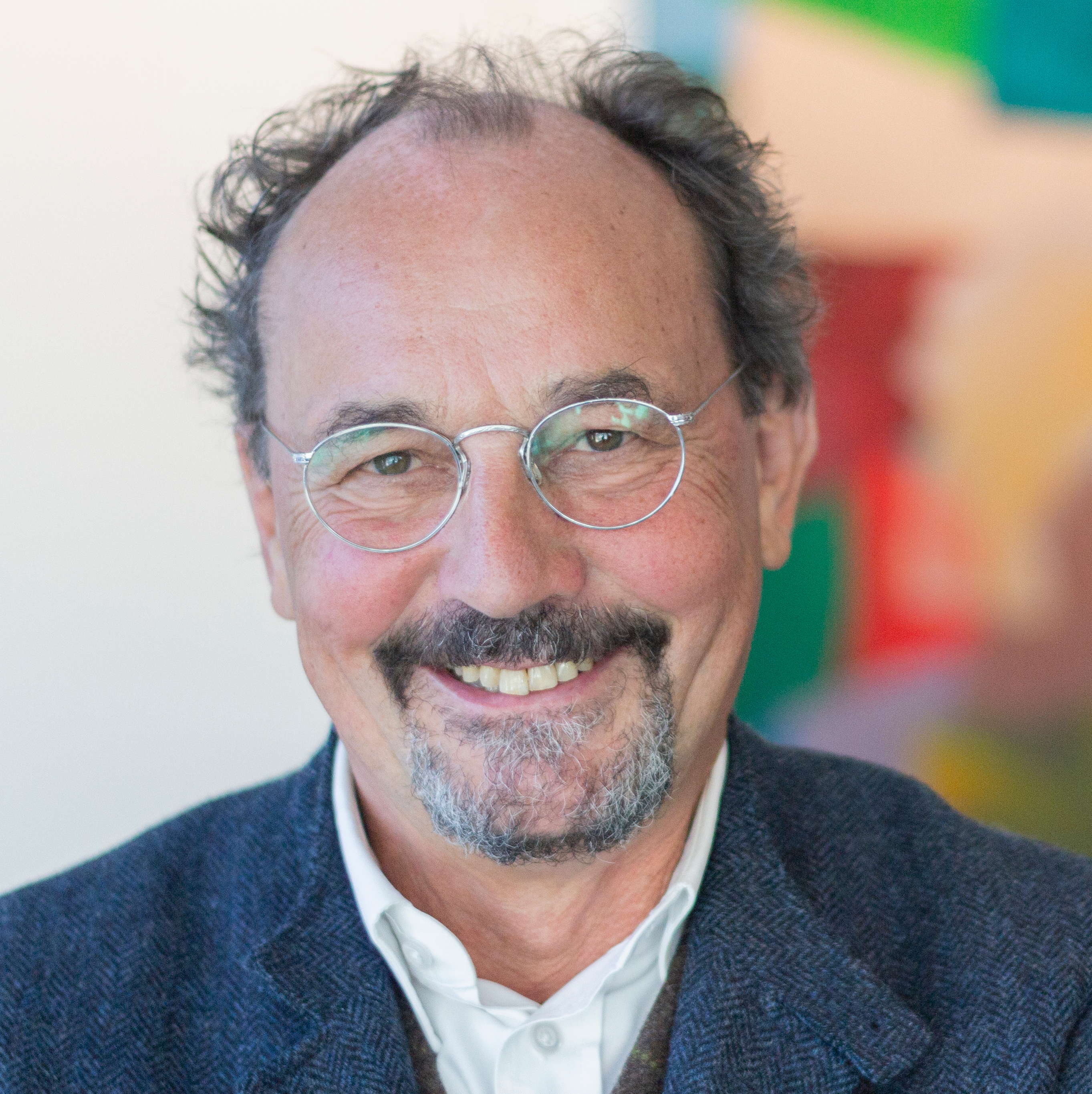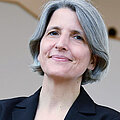
Strengthening local development by social enterprise in Kenya
The Siemens Stiftung has founded WE!Hub Victoria Ltd. (WeTu) in Kenya. Rolf Huber, Managing Director of the Siemens Stiftung, explains in this interview how the social enterprise intends to develop sustainable solutions and structures for drinking water and energy supply, as well as e-mobility solutions.

Magazine Stiftungswelt: Mr. Huber, the Siemens Stiftung has founded the social enterprise ‘WeTu’ in Kenya. What do you want to achieve with it?
Rolf Huber: The goals are identical to those of our foundation: we want to enable people to improve their living conditions and prospects. The only difference is in the approach: with the local social enterprise, we want to ensure a reliable basic supply of the best drinking water and clean solar energy in the long term. Moreover, the fact that this is an entrepreneurial model means that new jobs will be created in the region, and also opportunities for gaining qualifications. This economic dynamism opens up new opportunities for self-determination, while at the same time minimising entrepreneurial risks in the initial phase, as the Siemens Stiftung acts as the lender. In this way, innovative technical solutions – special electric vehicles, for example – can be tested. Combined with new sharing economy models, we want to trigger leaps in technology and development locally.
Couldn't your planned solutions for drinking water and energy supply also be implemented by the Siemens Stiftung in Munich?
In principle, yes, they could. However, our experience shows that the huge global challenges are best solved with local knowledge and commitment, coupled with international know-how and sustainable networks. The closer people come together, the better the ideas and solutions. The more context-sensitive the technical solution, the quicker it will be in taking effect. And the more local the business model and cultural integration, the greater and more sustainable the implementation. We have learned this on all continents by working with social entrepreneurs; this is what distinguishes our approach. Now, these experiences flow into WeTu at Lake Victoria, and are being made even more effective by the establishment of a local structure.
Wouldn't it have been more effective for sustainable development in the country if you as a German foundation had cooperated with an African partner instead of setting up your own company?
That's what we do, and not just with one, but with as many as possible. A very clever and often quoted African saying goes: ‘Those who want to reach their goal quickly go alone, those who want to get far go together.’ And there is not only one solution: we will not end our traditional foundation work – on the contrary, we will invest even more. WeTu was founded and financed by the foundation. At the same time, the aim is certainly that this company does not remain permanently in the hands of the foundation. The best possible scenario would be that further organisations and companies will establish a presence in what we hope will be a supportive ecosystem, in terms of technical applications and economic models, on the lake and in East Africa. What is decisive for us is the social and entrepreneurial attitude of such partners. WeTu must always focus on strengthening local development. With our foundation alone, we would not have enough resources and know-how to take the many necessary steps.
How do you strengthen African actors so that a functioning water and energy supply system exists in Kenya in the long term?
With cooperation right from the start. By building up local know-how as quickly as possible – in the technical and business areas, as well as in hygiene, health and social integration. To this end, we are relying on training and education measures that have already been applied, and we will also expand our partnerships with local universities and integrate various start-ups into the local structures that are currently being developed. Our company is located in the middle of ‘Lake Hub’, an IT start-up centre in Kisumu, the largest city in western Kenya. We feel and are seeing a lot of optimism and inventiveness. There is a lot of local power available, which can be combined with ours. Because, as I already quoted above, those who wants to get far must go together.
What role did German foundation law and the requirements of the tax office play in your considerations regarding setting up your own social enterprise in Kenya?
We have learned a lot in this area over the years. We work closely with social entrepreneurs all over the world and have jointly developed approaches that are oriented to both the local legal framework and German foundation law. In this context, the United Nations’ sustainability goals act as an accelerator: they promote cooperation across sector boundaries – non-profit foundations work together with private-sector organisations, and government agencies and international organisations support within their means. Our foundation law sets narrow limits, which are important in order to ensure foundations’ charitable mission. Within this framework, it is possible to develop tailor-made solutions in cooperation with the tax authorities. We have invested a lot of time and money in this and have gained some experience which we will share with our partners in the network of social entrepreneurs and other foundations. If we want to optimise our impact abroad and be a source of ideas for other sectors, we foundations in particular are called upon to tread new paths. I am convinced that we will see much more of this in the future.
You mention that the establishment of WeTu was closely coordinated with the responsible German tax office. What exactly had to be clarified and what were the special challenges?
Two framework conditions had to be clarified. Firstly, the participation in the Limited liability company formally falls within the scope of the foundation’s asset management. In principle, the aim here is to achieve the best possible returns with the lowest possible risk. However, participation in the local company is not geared to generating income for the foundation, and in the worst case it could even lead to a total loss of the funds invested. Second, the financial resources to acquire the existing assets – i.e. the land, buildings and technical infrastructure at Lake Victoria – were to be made available to WeTu in the form of a loan from Siemens Stiftung’s ‘zeitnahe Verwendung1 – i.e. from the ‘idealistic area’ (in German: ideeller Bereich) and then, where applicable, at conditions not customary in the market. In order to make this possible, WeTu’s articles of association had to be drawn up in line with the rules governing non-profit limited liability companies (GmbHs), from a German point of view. In summary, we have a 100% share in the asset management, which can be supported at the same time by our zeitnahe Verwendung, and whose possible losses have no negative effects on the foundation or the non-profit use of funds in the worst case. These approaches were confirmed by the tax office.
Is such a business model the future for German foundations that want to promote sustainable development across borders?
It is certainly only one of several possibilities. We, too, cannot and will not implement all our foundation work on this basis. Solutions and approaches must always be worked out that fit the particular situation. Entrepreneurial models are often similar to tried and tested ways of doing things in many societies and communities, from cooperatives to credit associations with investment models. Openness and innovative strength are required in order to best combine local structures and development potential with global knowledge.
Siemens Stiftung is known for taking new, innovative paths to achieve particularly sustainable effects – what comes next?
Our focus now lies first and foremost on WeTu, which we want to develop into a stable social enterprise, together with our employees and local partners. At the same time, we will look at the issue of scaling. From our point of view, this applies above all to environmentally compatible electro-mobility solutions for drinking water supply, fishing, agriculture and crafts. Very exciting and promising approaches are opening up here. We will learn quickly and develop models based on this knowledge in order to continue to promote effective innovations with investments, know-how and operational support.
1 A technical term in German law referring to funds that must be used promptly.

EZ-Scout Dr. Annette Kleinbrod
All articles of EZ-Scout Dr. Annette KleinbrodWeTu
WE!Hub Victoria Ltd. (WeTu for short) is a social enterprise founded by the Siemens Stiftung. With 14 employees, WeTu works across seven locations on Lake Victoria on solutions for drinking water and energy supply, as well as in the area of e-mobility.
Related Content
The reform of foundation law is coming
The bill to standardize foundation law will enter into force on 1 July 2023. The legislator has addressed important demands made by the Association of German Foundations and by academia, paving the way for improvements for small and large foundations alike.
Reflecting on 25 years of progress for gender equality – and how far there is to go
Twenty-five years ago, the World Conference on Women in Beijing adopted a Platform for Action that transformed national and international policies almost all over the world, recognizing that women’s rights are human rights. It impacted not millions, but billions of people.
“The SDGs are a powerful common language”
Benjamin Bellegy, Executive Director at the Worldwide Initiatives for Grantmaker Support (WINGS), on his new plans for the global SDG Philanthropy Platform (SDGPP).

